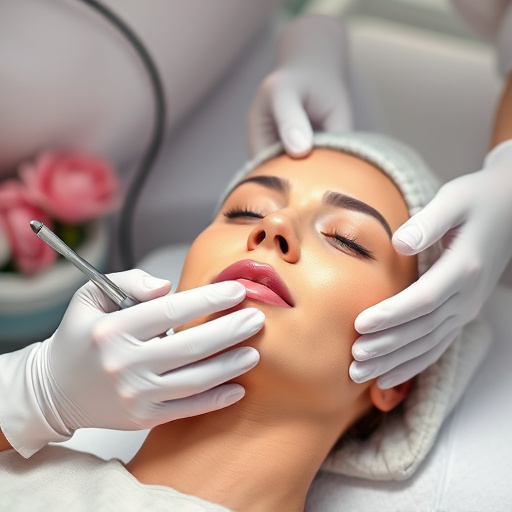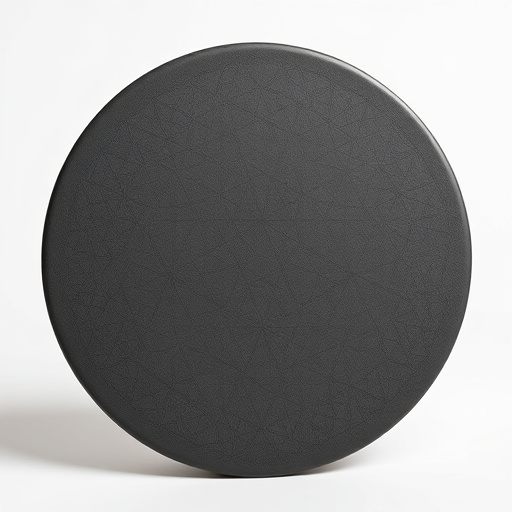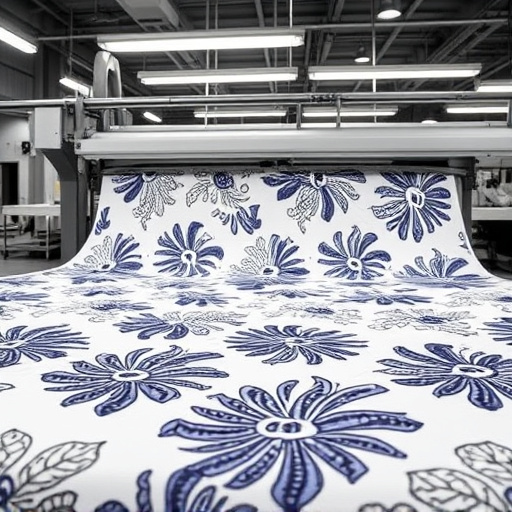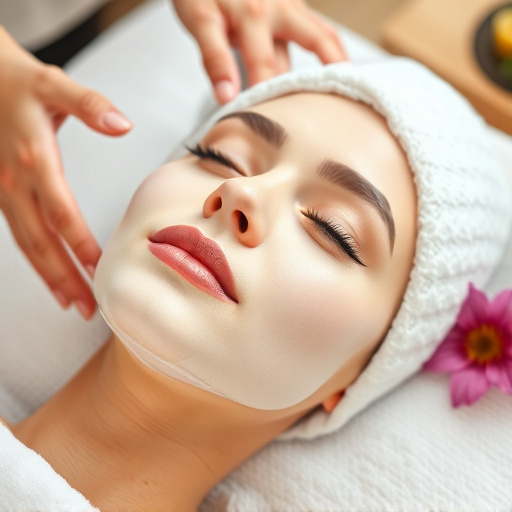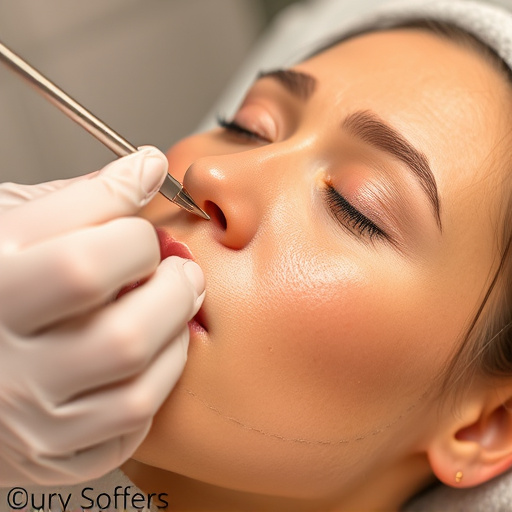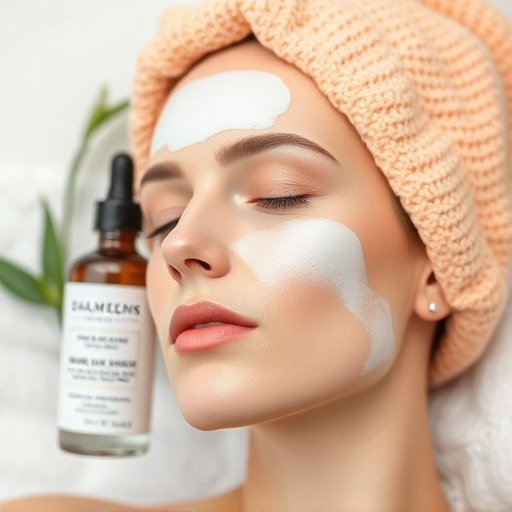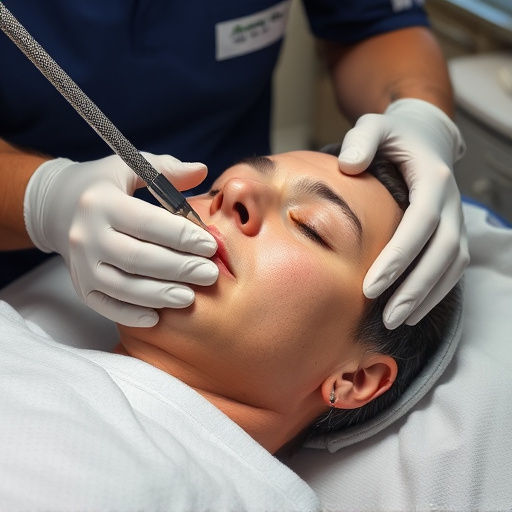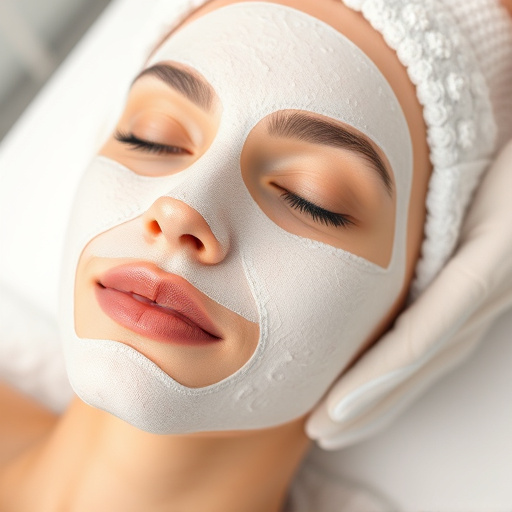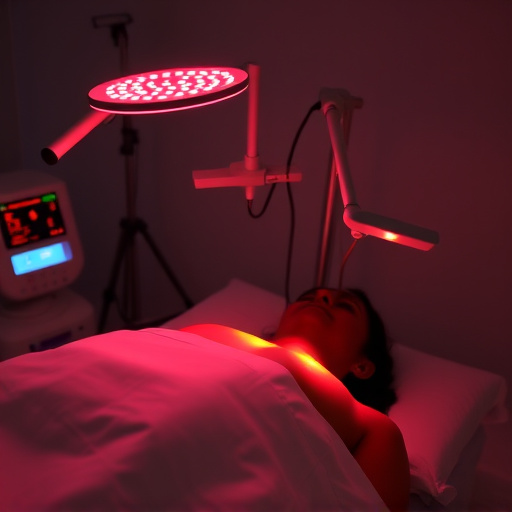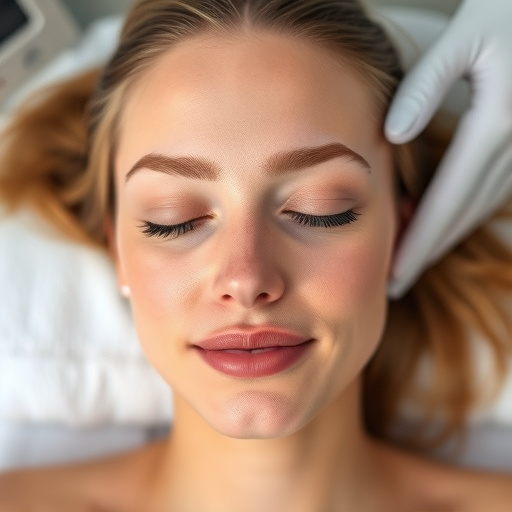Acne scars result from damaged collagen during acne flare-ups, leading to atrophic, hyperpigmented, or keloid types. Professional treatments like chemical peels, microdermabrasion, and laser resurfacing, coupled with dermatologist-approved home care, effectively manage and reduce scar appearance. Home care practices involve gentle yet robust skincare routines, including double cleansing, regular exfoliation, sun protection, and use of vitamin C and niacinamide. Combining these techniques with professional treatments like microneedling can substantially improve acne scar visibility.
Acne scars can be a persistent reminder of past breakouts, but there are effective dermatologist-approved treatments that can help reduce their appearance. Understanding how acne scars form is the first step towards achieving smoother skin. This article delves into the science behind scar development and explores top recommended treatments, from in-office procedures to at-home care practices. By implementing these strategies, you can achieve significant improvements in your acne scar treatment journey.
- Understanding Acne Scar Formation
- Top-Recommended Dermatologist-Approved Treatments
- Effective Home Care Practices for Optimal Results
Understanding Acne Scar Formation

Acne scars form when the skin’s collagen is damaged during an acne flare-up. Collagen is a protein that provides structural support to our skin, hair, and nails. When acne lesions rupture, they can cause inflammation that leads to scar tissue formation. This process involves the body’s natural healing response, but in some cases, it results in permanent damage. Different types of acne scars include atrophic scars (depressed scars), hyperpigmented scars (dark spots), and keloid scars (elevated, thick scars). Understanding the specific type of scar is crucial when selecting the most effective treatment.
Professional skincare treatments play a vital role in managing and reducing the appearance of acne scars. One popular and proven method is chemical peels, which use chemicals to exfoliate the skin, revealing smoother, more even-toned skin beneath. Facial treatments, such as microdermabrasion or laser resurfacing, can also stimulate collagen production and improve skin texture. Combining these professional skincare techniques with a consistent home care routine can significantly enhance the results of acne scar treatment.
Top-Recommended Dermatologist-Approved Treatments
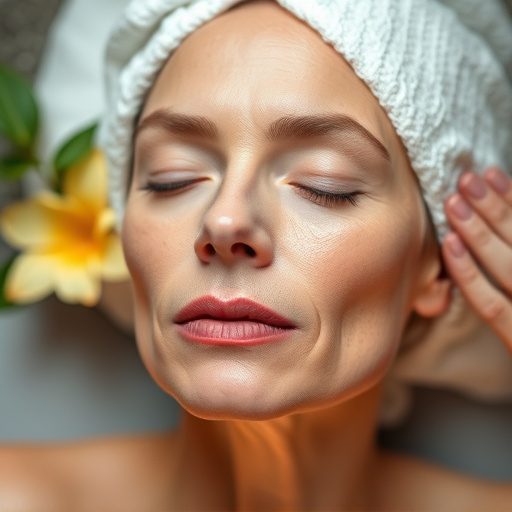
When it comes to dermatologist-approved acne scar treatments, several options stand out for their effectiveness and safety profiles. One of the most popular and highly recommended is chemical peels, which use a blend of chemicals to gently exfoliate the skin, revealing smoother, brighter layers beneath. This non-invasive procedure not only helps to improve the appearance of scars but also enhances overall skin texture and tone.
Another powerful tool in a dermatologist’s arsenal is microdermabrasion, a process that mechanically exfoliates the skin using fine crystals or a special device. By removing the top layer of dead skin cells, it promotes collagen production and tightens the skin, leading to a more youthful and radiant complexion. For those seeking deeper changes, certain dermatologists may suggest laser treatments, which use targeted light energy to stimulate cellular renewal and improve scar tissue texture. Combining these advanced techniques with topical creams that contain ingredients like retinol or vitamin C can further enhance results, contributing to a comprehensive approach to achieving clear, rejuvenated skin.
Effective Home Care Practices for Optimal Results
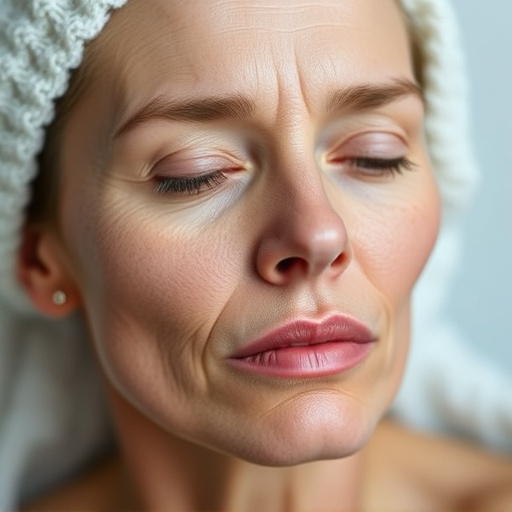
Acne scars can be persistent reminders of past skin issues, but with the right home care practices, significant improvements are achievable. While professional treatments like microneedling therapy offer exceptional results, daily routines play a crucial role in complementing these efforts. Incorporating gentle yet effective products into your skincare regimen is essential for optimal acne scar treatment.
Start by cleansing your skin twice daily with a mild cleanser to remove impurities and excess oil without stripping the skin. Exfoliation is another key step; gently exfoliate 2-3 times per week to promote cell turnover and enhance product penetration. Always follow up with sunscreen, as sun exposure can darken scars and hinder healing. Additionally, consider products with active ingredients like vitamin C for its skin brightening properties and niacinamide, known for its ability to reduce the appearance of wrinkles and improve skin texture.
Acne scars can be a source of frustration and self-consciousness, but with the right approach, significant improvements are achievable. By understanding how acne scars form and implementing dermatologist-approved treatments, along with effective home care practices, you can navigate your journey to clearer skin. Remember, consistency is key when it comes to skincare, and combining professional treatments with a robust home routine will yield the best results for lasting acne scar treatment.
